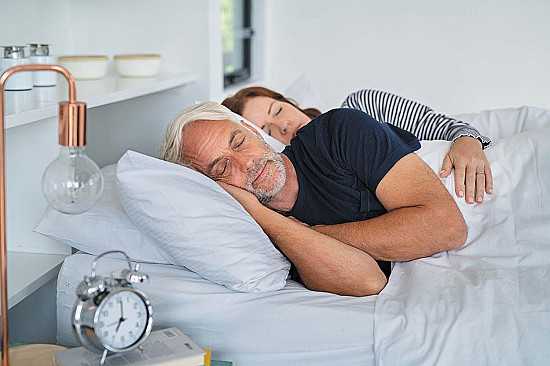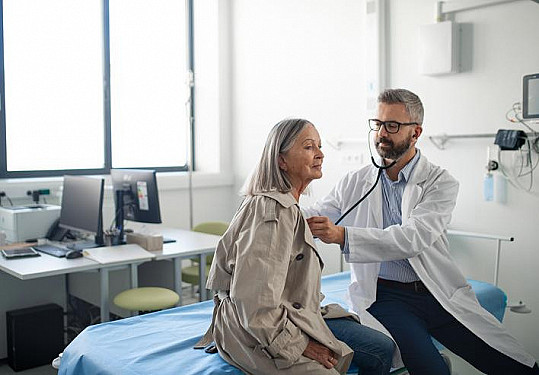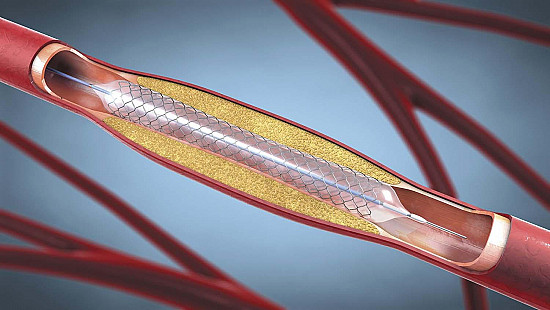Matters of the heart: Sex and cardiovascular disease
|
|
Cardiovascular disease may change many aspects of your life, but sexual intimacy does not have to suffer as a result.
Thanks to early screening, lifesaving interventions, and sophisticated pharmacology, millions of people live full, active lives after a heart disease diagnosis. That can include sex. Although the physical and emotional strains of cardiovascular disease often take a toll on a couple's intimate activities, there is ample reason to persevere. "Sexual activity and sexual function are major quality-of-life issues for both men and women with cardiovascular disease," says Dr. Joanne Foody, director of cardiovascular wellness services at Harvard-affiliated Brigham and Women's Hospital.
Barriers to intimacy
Frequency and quality of sex are closely tied to a person's general health. Many of the symptoms of cardiovascular disease conspire to diminish sexual enjoyment. Faulty circulation reduces the amount of blood that reaches the sex organs, which can lead to erectile difficulties in men. Women may not have the blood flow needed for vaginal arousal and lubrication. High blood pressure, diabetes, and depression can also interfere with sexual desire and response.
Medications used to treat cardiovascular disease can also blunt interest in sex or cause orgasm difficulties. But don't be tempted to quit any of your cardiac medicines because of sexual side effects. Instead, ask your doctor if you can try a different class of drug or a different dosage. "A healthy heart is the first prerequisite for an enjoyable sex life," says Dr. Foody.
After coronary artery bypass surgery, people often find it more difficult to return to sexual activities than to other aspects of daily life such as job and family. Postsurgical discomfort, poor self-image, and the anxiety of an overprotective partner are frequently cited obstacles. However, people who participate in a cardiac rehabilitation program tend to fare better, reporting greater sexual satisfaction and a return to sexual activity in the months after surgery.
Risks: Real and imagined
Dread of having another heart attack or dying during intercourse looms large in the bedroom for many patients and their partners following a cardiovascular event. "Despite what is shown in the media, heart attacks rarely occur during sexual activity because the exertion is usually short in duration," says Dr. Foody. In reality, the odds of having a heart attack during sex with a regular partner are very low. Viewed as a form of physical exertion, sex ranks in the category of mild to moderate intensity—about the equivalent of doing light housework or climbing two flights of stairs.
An episode of chest pain in the minutes or hours following intercourse is also a frequent concern among people with coronary artery disease. However, angina d'amour, as it is quaintly termed, accounts for less than 5% of all angina attacks. It is particularly rare in people who can routinely exercise without having symptoms of chest discomfort. An important caveat is that men who take nitrates to control angina symptoms should not use drugs for erectile dysfunction such as sildenafil (Viagra) and tadalafil (Cialis).
In addition, people with an implanted cardiac defibrillator often worry the device will deliver a shock to the heart during lovemaking. If this does happen, it will not cause a partner any harm or pain. However, anyone who experiences shocks should discuss the problem with a cardiologist.
Moving forward
Sex is safe for the majority of people with heart disease, but Dr. Foody advises that you should get an evaluation from your doctor after a cardiac event or a change in your heart status. People in high-risk categories, such as those with uncontrolled high blood pressure, unstable angina, or advanced heart failure, should defer sexual activity until their condition is adequately treated.
Working through the emotional challenges of maintaining healthy intimacy in the atmosphere of heart disease can be trickier. Good communication—with your doctor and your partner—is key here as well. Feel free to express your concerns and worries. Your health care provider can direct you to educational resources or recommend couples counseling if needed to help you regain a fulfilling love life.
Return to enjoymentHere's some advice for successful lovemaking after a diagnosis of heart disease.
|
Disclaimer:
As a service to our readers, Harvard Health Publishing provides access to our library of archived content. Please note the date of last review or update on all articles.
No content on this site, regardless of date, should ever be used as a substitute for direct medical advice from your doctor or other qualified clinician.
















